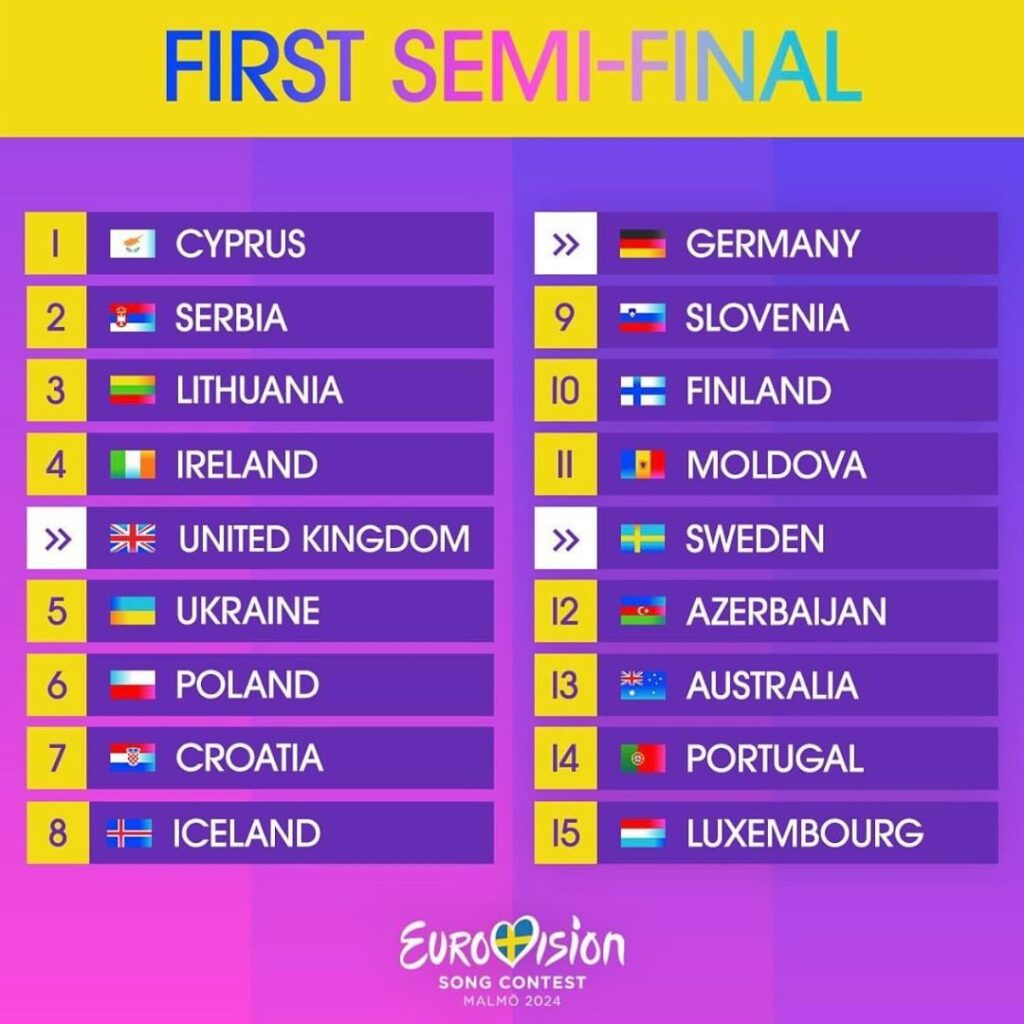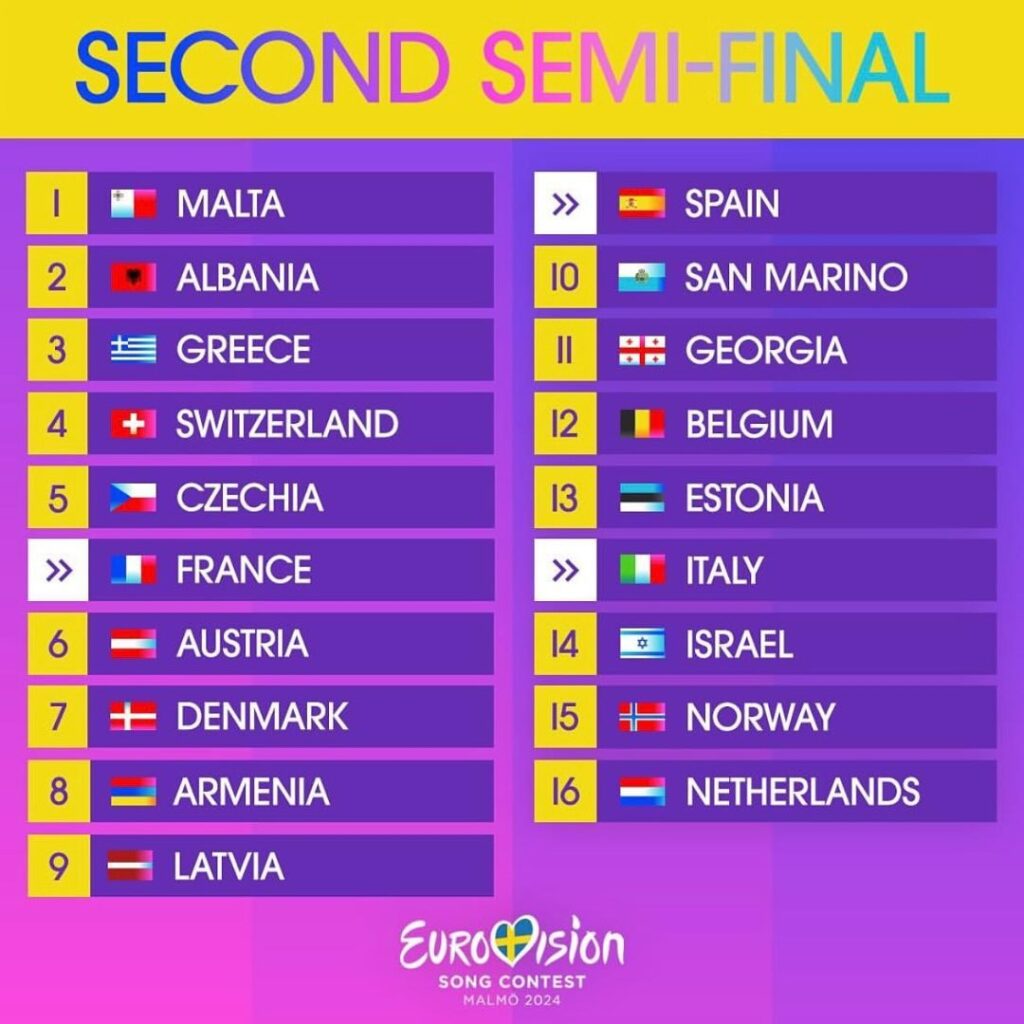What are the rules for Eurovision this year (and how have they changed)?
Une petit révolution traverse le monde de l’Eurovision alors que de nouvelles règles viennent d’être annoncées pour l’édition 2024 du concours. Depuis un an, la communauté des fans était en émoi après que Käärijä se soit incliné en finale de l’Eurovision 2023 devant Loreen, malgré une avance significative sur la candidate Suédoise lors du télévote (243 contre 376), allant jusqu’à questionner la règle des 50% de la note attribuée lors de la finale par le Jury de professionnels et 50% par le vote du public. Fallait-il tout bonnement et simplement supprimer le vote du jury ? Réduire le poids du Jury et augmenter celui du public ? Les analyses, rumeurs, simulations de ce qui se serait passé avec une autre configuration ont tourné pendant quelques mois.
And a few days ago, the EBU finally announced two changes that will bring a touch of novelty.
Nouvelles règles Eurovision : Pourquoi les Big-5 vont chanter en demi-finale à l’Eurovision 2024 ?
Qui sont les Big-5 et pourquoi étaient-ils qualifiés d’office jusqu’ici ?
The Big-5The concept dates back to 2000 (when it was the Big-4, but now Italy has joined the bandwagon). These countries - France, Germany, Italy, Spain and the UK - have direct VIP access to the Eurovision final, regardless of their performance the previous year. They fund the EBU, and therefore Eurovision, to a significant extent, so they automatically have a ticket to the final. You can disagree with that rule, but hey. And of course, the country that won the contest the year before also automatically qualifies for the final.
Comment les Big-5 vont se produire en live pendant les demi-finales ?
In short, until now, these six VIP countries were only entitled to a short sequence during the Semi-Finals, where their representative was invited to an interval act, exchanged a few words with the Masters and Mistresses of Ceremonies, and the public was treated to a short extract from their studio performance. But it wasn't really fair, and it wasn't really nice for the audience, who were left wanting more.
So that rule is about to change! The EBU, with the complicity of SVT (the Swedish broadcaster in charge of organising this year's Eurovision in Malmö), has just announced that the pre-qualified countries will be able to perform live during each semi-final. And that changes everything!
Ebba Adielsson, the executive producer of Eurovision 2024, explains: "We think this change will give the Big-5 countries and the host country a fairer chance in the Final, because they'll be able to let loose on stage for real during the Semi-Finals."
The draw, made in January, will therefore be respected:
Semi-final 1
- Germany
- Sweden
- United Kingdom
Semi-final 2
- France
- Italy
- Spain
The six pre-qualified countries will perform between the songs of the other competing countries during the Semi-Finals. Of course, there will be no voting for these countries. It promises to add a whole lot of spice to these evenings, with the added bonus of being able to see your favourites live on the Eurovision stage.


Quand peut-on voter à l’Eurovision ? Le télévote évolue
The second new feature introduced in 2024 concerns televoting. From now on, fans will no longer have to wait until the end of each artist's performance to vote. Instead, voting will be open from the very first performance, allowing viewers to get involved and actively participate from the very first moments of the show.
Ebba Adielsson explains We want to give viewers the chance to get involved right from the start: if you see something you like, you should be able to vote straight away. You can also, of course, wait for the recap at the end, as in previous years." This decision marks a turning point in the history of the competition, offering greater interactivity and immediate engagement for fans around the world.
Comment voter à l’Eurovision depuis un pays non participant ?
Viewers from non-participating countries will also be able to take part in the voting process. An online vote will be open 24 hours before the start of each semi-final or final, remaining accessible until the start of the live shows. This initiative aims to broaden the reach of the competition and enable an international audience to support their favourite artists, thus helping to strengthen the bonds and passion that drive the Eurovision community around the world.
Dates à retenir pour l’Eurovision 2024 : quand voter, et pour qui ?
The 68th Eurovision Song Contest will take place from 7 to 11 May 2024 in Malmö, Sweden, with a total of 37 countries taking part. The Semi-Finals will take place on 7 and 9 May, and the ten best songs from each evening will earn a place in the Grand Final on 11 May, where the action will be fierce, with 26 countries competing, including Sweden, the Big-5, and the Semi-Final survivors.






